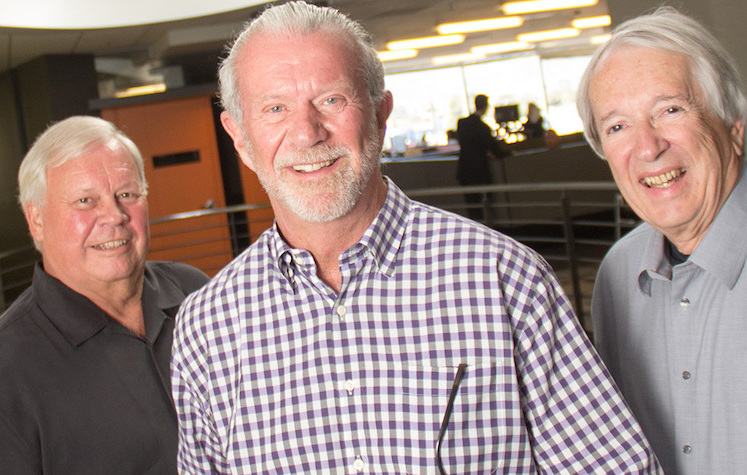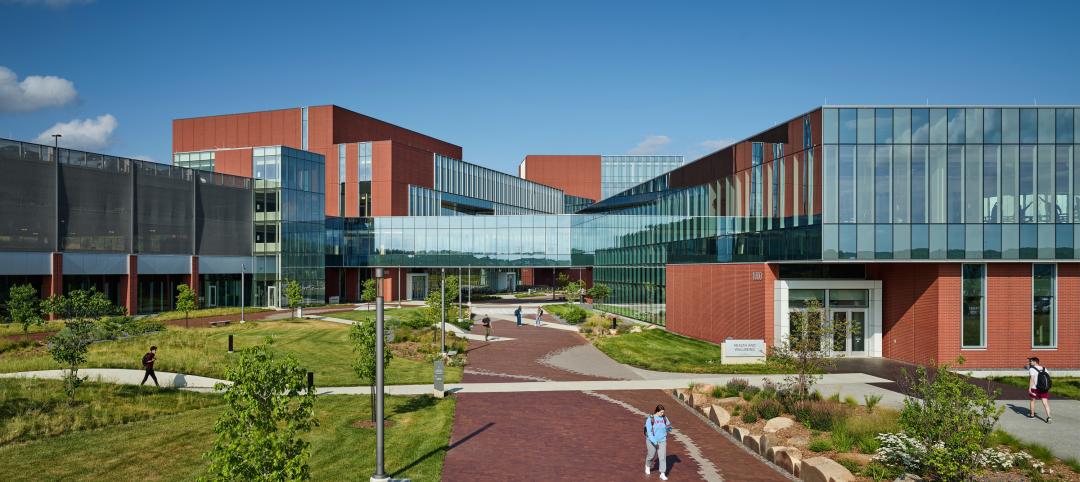Doug Woods, cofounder of Redwood City, Calif.-based DPR Construction, passed away peacefully at his home on May 19, according to a statement released by the company. He was 70 years old.
The cause of death and the names of family survivors were not immediately available.
With partners Peter Nosler and Ron Davidowski, and $750,000 in pooled resources, Woods launched DPR as a self-performing general contractor in Palo Alto, Calif., in 1990. (The firm’s name derives from the initials of the founders’ first names.) “When we started DPR, we wanted to be a customer-focused organization,” recalls Woods, who always saw DPR as a service business. “We’re not a hard-bid general contractor; we’re a negotiating, self-performing general contractor that takes care of our customers. To do that, we need great people, who are happy and willing to work hard. That’s one of the things that started us, making us different from the very beginning.”
By 1995, DPR ranked third on Inc. Magazine’s national fastest-growing private companies listing. And over more than 30 years, Woods, Nosler and Davidowski watched their business expand into one of the industry’s largest GCs, with roughly 6,500 office and craft employees worldwide and more than $6 billion in revenue in 2019, the latest year for which sales information was available.
Woods stepped back from day-to-day management of the firm in 2015, but stayed on DPR’s Management Committee until 2017. He served as CEO on the firm’s board of directors until his passing.
CONSTRUCTION IN HIS BLOOD

DPR Construction's Doug Woods emphasized team building and customer service.
Born in Ontario on January 27, 1951, Woods was the son of an engineer. His family built or remodeled every house that Woods lived in growing up, and his father worked in construction and real estate. “Being in the construction field is in my blood,” Woods was quoted as saying.
DPR’s first ground-up project was a skilled-nursing facility for The Terraces in Los Gatos, Calif., and healthcare has since been one of its primary practices. The firm hit $1 billion in annual revenue for the first time in 1998. But Woods wasn’t interested so much in milestones. “For us, there has been no single defining moment but a series of opportunities and challenges that have impacted the company DPR is today and made us stronger.
The company’s unregimented management style—“No titles, no ties, no org chart,” Woods told the San Francisco Business Times in 2015—found its success in collaborative teamwork, which is palpable in the reminiscences of several colleagues and employees.
TEAM BUILDING MORE WORDS
“I only had the privilege of meeting Doug maybe six times. From a guy who came up from the field and had limited education, Doug really showed me what ‘no rank in the room’ meant: ‘Don’t ever forget, we exist to build great things,’ ” recalled Robbie Thomason, a senior superintendent who has been with DPR for more than seven years.
David Ibarra, a 25-year company vet who directs the firm’s mission-critical group, remembers meeting Woods as a new employee doing electrical on a complex project. Woods wanted to know if Ibarria was getting the management support he needed in the field to execute his job. “If not, he told me ‘just call them out.’ I had a founder talking to me directly, and ensuring that I was empowered to do my role.”
Kurt Wallner, a Project Executive at DPR, first encountered Woods in May 2000, when the latter was laying out the firm’s 2030 Mission. “Hearing Doug talk about a vision for DPR, decades into the future, I knew right then that I was joining something very, very special.”
Woods served on the Construction Industry Roundtable and was a board member with U.S. Green Building Council. And his legacy at DPR could, in part, be defined by Mission 2030, the firm’s strategic focus to be recognized as one of the world’s most admired companies by that year.
Related Stories
Sustainable Design and Construction | Oct 10, 2024
Northglenn, a Denver suburb, opens a net zero, all-electric city hall with a mass timber structure
Northglenn, Colo., a Denver suburb, has opened the new Northglenn City Hall—a net zero, fully electric building with a mass timber structure. The 32,600-sf, $33.7 million building houses 60 city staffers. Designed by Anderson Mason Dale Architects, Northglenn City Hall is set to become the first municipal building in Colorado, and one of the first in the country, to achieve the Core certification: a green building rating system overseen by the International Living Future Institute.
Contractors | Oct 10, 2024
How to get your construction team engaged and on board with new processes
Discover practical strategies to boost employee engagement and create a collaborative environment where your team feels valued and motivated to contribute to your company’s vision.
3D Printing | Oct 9, 2024
3D-printed construction milestones take shape in Tennessee and Texas
Two notable 3D-printed projects mark milestones in the new construction technique of “printing” structures with specialized concrete. In Athens, Tennessee, Walmart hired Alquist 3D to build a 20-foot-high store expansion, one of the largest freestanding 3D-printed commercial concrete structures in the U.S. In Marfa, Texas, the world’s first 3D-printed hotel is under construction at an existing hotel and campground site.
University Buildings | Oct 9, 2024
Des Moines University Medicine and Health Sciences opens a new 88-acre campus
Des Moines University Medicine and Health Sciences has opened a new campus spanning 88 acres, over three times larger than its previous location. Designed by RDG Planning & Design and built by Turner Construction, the $260 million campus features technology-rich, flexible educational spaces that promote innovative teaching methods, expand research activity, and enhance clinical services. The campus includes four buildings connected with elevated pathways and totaling 382,000 sf.
Student Housing | Oct 9, 2024
University of Maryland begins work on $148 million graduate student housing development
The University of Maryland, in partnership with Campus Apartments and Mosaic Development Partners, has broken ground on a $148.75 million graduate student housing project on the university’s flagship College Park campus. The project will add 741 beds in 465 fully furnished apartments.
AEC Tech Innovation | Oct 8, 2024
New ABC technology report examines how AI can enhance efficiency, innovation
The latest annual technology report from Associated Builders and Contractors delves into how artificial intelligence can enhance efficiency and innovation in the construction sector. The report includes a resource guide, a case study, insight papers, and an essay concerning applied uses for AI planning, development, and execution.
Healthcare Facilities | Oct 8, 2024
Herzog & de Meuron completes Switzerland’s largest children’s hospital
The new University Children’s Hospital Zurich features 114 rooftop patient rooms designed like wooden cottages with their own roofs. The project also includes a research and teaching facility.
Mixed-Use | Oct 7, 2024
New mixed-use tower by Studio Gang completes first phase of San Francisco waterfront redevelopment
Construction was recently completed on Verde, a new mixed-use tower along the San Francisco waterfront, marking the end of the first phase of the Mission Rock development. Verde is the fourth and final building of phase one of the 28-acre project that will be constructed in several phases guided by design principles developed by a design cohort led by Studio Gang.
Brick and Masonry | Oct 7, 2024
A journey through masonry reclad litigation
This blog post by Walter P Moore's Mallory Buckley, RRO, PE, BECxP + CxA+BE, and Bob Hancock, MBA, JD, of Munsch Hardt Kopf & Harr PC, explains the importance of documentation, correspondence between parties, and supporting the claims for a Plaintiff-party, while facilitating continuous use of the facility, on construction litigation projects.
University Buildings | Oct 4, 2024
Renovations are raising higher education campuses to modern standards
AEC higher ed Giants report working on a variety of building types, from performing arts centers and libraries to business schools. Hybrid learning is seemingly here to stay. And where possible, these projects address wellness and mental health concerns.

















